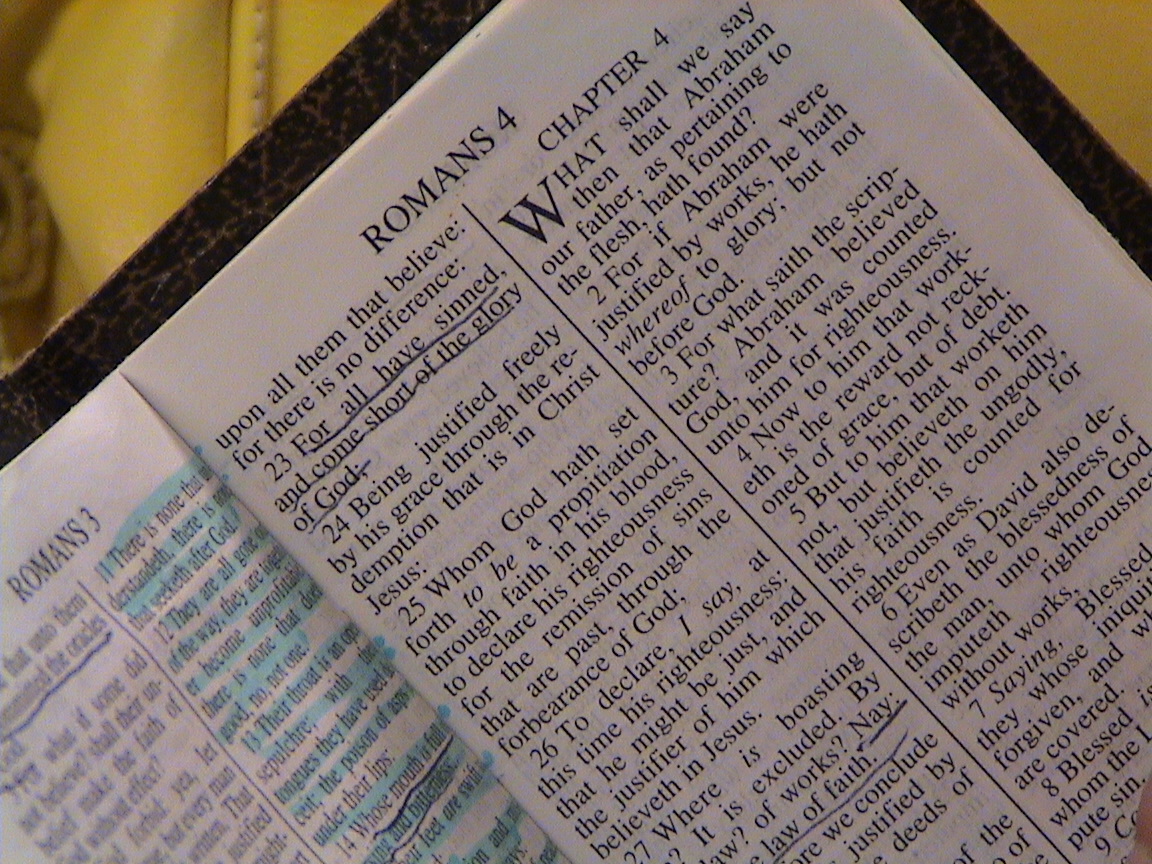(I feel a little like Pilate typing that title.)
I not-so-recently undertook to journal (and by “journal” I mean “brain dump,” as I explained here) through Romans, which I shortly realized may have been a mistake. I’m not sure I’m ready for Romans.
Months later I’m in chapter three (shut up, it’s really hard), and the other day I filled up two full pages on verse 25. At the top of the second page I may have had a small epiphany, but I also may have just lost my mind. You tell me:
Romans 3:25//whom God set forth as a propitiation by His blood, through faith, to demonstrate His righteousness, because in His forbearance God had passed over the sins that were previously committed,
I don’t know a lot about Romans, but as best I can figure, Paul has spent two chapters setting the reader up for failure and has recently switched to “but wait!” to present Jesus as the missing piece. Very clever strategy, really.
So verse 25 is talking about Jesus, and the first part is kind of a re-cap: Jesus makes amends for me by His blood, according to my faith. The rest of the verse is what got me.
The next word is “to,” as in “for the purpose of.” Why did Jesus offer Himself as that “expiation” (in the Greek, fancy-pants) by becoming a sacrifice? “To demonstrate His righteousness.”
Mm-kay. How on earth does His taking the punishment for my sin demonstrate righteousness? Wouldn’t righteousness demand that the guilty party pay the just price for her sin? I can see it demonstrating His mercy, or His love, but His righteousness?
I pulled open our huge Greek NT (with the literal English translation, no I can’t read Greek) and the word isn’t “righteousness,” it’s “rightness.” He became a sacrifice for my filth to demonstrate His rightness?
That’s what it says, so maybe my definition of “right” is … wrong. Here’s what I scribbled:
Or is “righteousness” in God’s government expressed as sacrifice, mercy, grace. “Righteousness” is “rightness” in Greek. It is right, before God, to extend mercy, etc.
That changes things. When someone wrongs or hurts me, the “right” thing to do is not to sue, or get even, or hold a grudge, etc. Jesus seems to think the “right” thing to do is extend mercy and grace, even if it means sacrificing something of yourself.
And I quickly remembered something I’d recently read in What The Bible Teaches (that link will open the entire, huge book in PDF). R. A. Torrey backs me up in his chapter on the righteousness of God:
The Righteousness or Justice of God is that attribute that leads Him always to do right. It is not to be limited, as it so often is in modern theological usage, to His punitive justice. This, as we shall shortly see, is only one manifestation of the Justice, or Righteousness of God, and not the one that is most prominent in Biblical usage.
If God’s “righteousness” is more about doing what is right, and less about “punitive justice,” and “right” is mercy and grace and sacrifice – how much of my life has to change?


i both love & hate that i just read this.
love it cause its so true.
hate it cause so much needs to change.
We discussed Romans in our church last year. I think it was pretty much the entire year. So yes, a lot to unpack.
Funny how through the cross, Christ both did the right thing and ensured justice was carried out. I appreciated you sharing your thoughts on this.
“Grace” – That was kind of my sentiment too. And would you believe I got an opportunity to practice the very next day?
Ed – Thanks for the comment! I’ll hopefully have more to share from Romans as I go through, so I’d definitely appreciate your insight along the way!